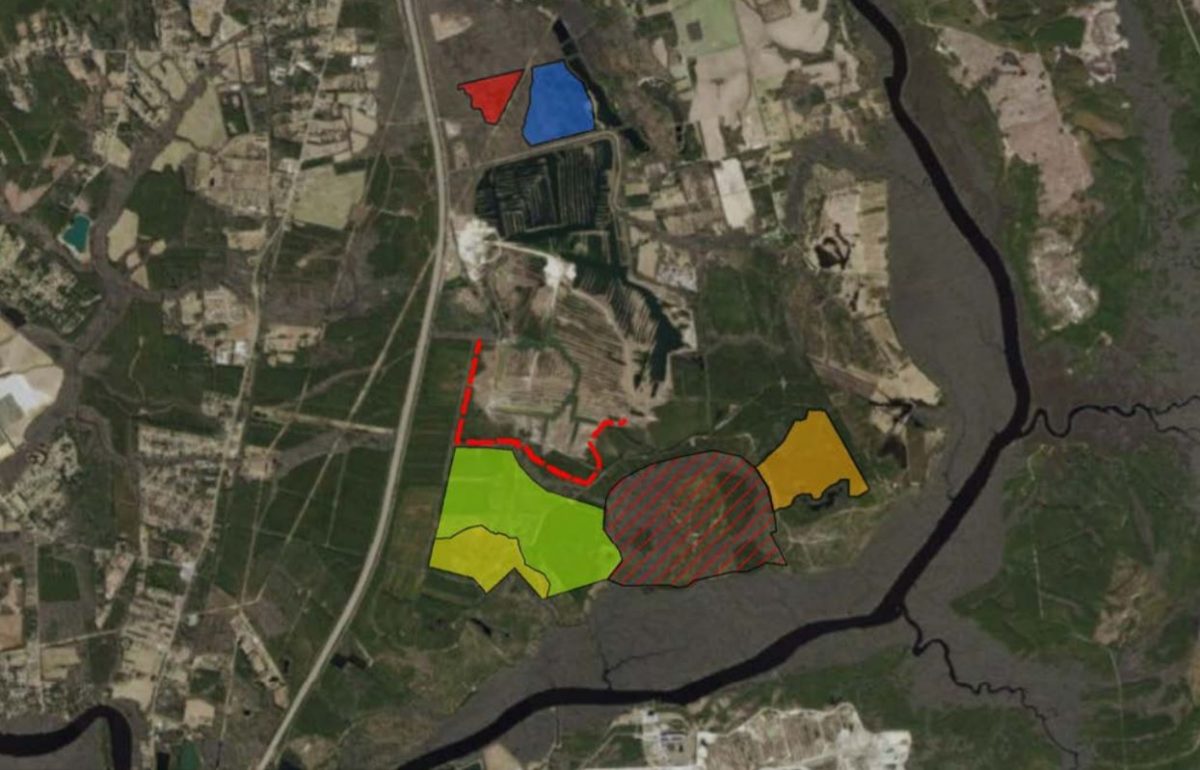
ROCKY POINT – Proposed plans to expand a limestone quarry, a move that would permanently impact dozens of acres of wetlands and other waters on the property, remain on hold as state environmental officials await further information on the project.
Martin Marietta Materials Inc. requested earlier this year federal authorization to impact a little more than 63 acres of nonriparian wetlands to increase mining operations on 511 acres at its Rocky Point Quarry in Pender County.
Supporter Spotlight
The proposed expansion would entail the excavation of two new limestone quarry pits.
In addition to wetlands, about 1.2 miles of stream channel, 1.4 miles of jurisdictional ditches and 1.07 acres of open water ponds would also be impacted.
U.S. Army Corps of Engineers officials generally wait to make a permit decision after the North Carolina Division of Water Resources, or DWR, either issues, denies or waives state certification of a proposed project under Section 401 of the Clean Water Act.
DWR officials have not made that decision, Robert Johnson, public affairs specialist with the state Division of Energy, Mineral & Land Resources, said in an email.
“The project is currently on hold awaiting additional information from the applicant,” he said.
Supporter Spotlight
In a Feb. 24 letter to the Corps’ Wilmington district office, DWR noted that it has concerns some of the secondary impacts of the proposed expansion have not been sufficiently addressed and that the division has requested more technical information from the company.
That information includes clarification on how the pits will be dewatered, where that water will be routed and how much of that water, measured in gallons per day, will be pumped from the pits; whether excavation and dewatering of the mine pits will affect adjacent wetlands; and how stormwater runoff will be managed throughout the mine.
The state also said it wants the design of the erosion control structures proposed for the site and documentation and/or a detailed technical analysis to show there will not be secondary hydrological impacts to some of the onsite stream features.
Martin Marietta’s plans include maintaining a minimum 50-foot forested buffer around all wetlands and waters that are not directly impacted by the proposed project.
To compensate for the impact of lost wetlands and waters, the company proposes to buy a little more than 11,100 stream credits and 126.1 nonriparian wetlands credits from wetlands mitigation banks.
Martin Marietta proposes to buy credits with the Northeast Cape Fear Umbrella Mitigation Bank, which includes the Holly Shelter Bay site that spans between the Northeast Cape Fear River and Holly Shelter Game Land in Pender County.
The bank encompasses more than 1,000 acres of endemic wetland and headwater stream habitat, but currently does not have enough credits for Martin Marietta to buy so the company has asked to span its mitigation plan over the course of a decade.
The company has applied for a 10-year permit to complete the proposed impacts in phases.
Under the permit, the company would complete mitigation requirements before doing the work that would impact the wetlands and waters, according to information on the Corps’ website.
The company forecasts mining would begin in the initial expansion area next year. The second phase would kick off in 2026 and the third in 2029.
The Rocky Point Quarry has been active since 1983.
In September 2004, the Corps issued Martin Marietta a permit that authorized impacts to nearly 7 acres of wetlands for the expansion of the mining site. The company provided compensatory mitigation for those wetlands.
The latest proposed expansion would meet short- and medium-term market demand in the Wilmington area, according to the company’s stated purpose for the expansion.
One area of the quarry that includes about 22 acres of wetlands has been identified as a significant natural heritage area by the North Carolina Natural Heritage Program.
To access the reserves at this particular site, one the company says would be a rich mining resource, about 200 acres of wetlands would be impacted.
The company has decided against impacting this particular area, according to information provided on the Corps’ website.
The Corps initiated Section 7 consultation of the Endangered Species Act because the agency determined the proposed project may affect federally listed endangered or threatened species or critical habitat.
The Corps’ public comment period on the proposal ended Feb. 24. Now, Corps officials are considering whether to host a public hearing on the proposed expansion.
Wilmington district public affairs specialist Jed Cayton said in an email that once a decision is made, the Corps will notify the applicant and those who have requested a public hearing.
“If we determine a public hearing is warranted, the timeframe for a hearing will depend wholly on the pandemic,” he said.







